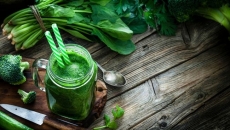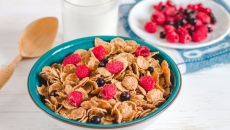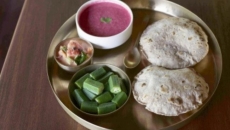Historically, humans have maintained a diet that depended on their region and the crops that grew in their vicinity, and this has worked quite well for mankind for centuries. The modern world however is very different from what it used to be a few decades ago. Technological and Industrial growth has effected a sudden change, not just in the type of food we consume, but also the type of physical activities we engage in and there seems to be a lot of catching up for the body to undertake, especially for our metabolism to adapt to this change.
This has resulted in health complications for many and calls for a reorientation of our dietary habits, by looking for sources of nutrients that work better for our wellbeing in the present scenario. Modern-day consumers are becoming increasingly aware of diets that suit their lifestyles and are exploring and adopting new staples. There is an incredible resurgence of some of the forgotten grains, that we now call alternative grains and they hold key to a healthier life and are being used in a variety of foods and snacks.
Alternative grains refer to a variety of non-conventional grains that are gaining popularity as alternatives to wheat, rice, and corn. Grains such as millet, amaranth, buckwheat, and quinoa offer unique flavors, textures, and nutritional benefits, making them appealing to people with specific dietary needs or those looking to diversify their food choices. Here are some examples of alternative grains.
Organisations like the UN have brought these nutrient-packed grains into the spotlight, rekindling their rich cultural heritage and highlighting their versatility in the culinary world. To enable you to explore the myriad of benefits that these grains offer, and discover how they can contribute to a healthier life, Raju Bhupati, Founder of Troo Good, India's largest millet-based snacking company, has put together a list of 5 options you can easily try-out:
Millet - Millet is an extremely versatile grain that can be found in a variety of popular quick-bite options, ranging from chikki and energy bars to puffs and cakes. They are gluten-free and contain vital nutrients that are essential for healthy body functioning and fighting disorders such as diabetes and celiac disease. Additionally, India is the largest producer of millet in the world, making it widely and readily available to the general public. The country also has experience with millet consumption in a variety of forms, such as rotis, porridge, pulao, and much more. Although the use of millet in the processed food market is still in its early stages, many companies have realized the potential of including wonder grain in their product lineups. Millet products have traditionally been associated with being a niche, premium product. However, as more brands adopt the use of millet and the technology of processing them becomes more efficient, they will undoubtedly emerge as a force to be reckoned with in the mass market for snacks and quick bites.
Chia Seeds: Nutrient-rich, tiny black seeds derived from the Salvia Hispanica plant, Chia seeds are native to Central and South America. Despite their small size, they pack a powerful nutritional punch. Chia seeds are a great source of fiber, protein, healthy fats, and essential minerals like calcium, magnesium, and phosphorus. Their health benefits include aiding digestion, promoting heart health, and stabilizing blood sugar levels. When soaked in liquid, chia seeds form a gel-like consistency, making them a popular addition to smoothies, puddings, and overnight oats. They can also be sprinkled on top of yogurt, salads, or used as an egg substitute in vegan baking. The versatility of chia seeds makes them an excellent choice for those seeking to incorporate a healthy boost into their daily diet.
Amaranth: Amaranth, also referred to as pigweed, is the seed of a family of plants that bear the same name. They are high in protein and free of gluten. The grain’s parent plant consists of properties that are similar to spinach. Amaranth is mainly used to produce flour and flakes and has a mild, nutty, and malty flavour. It consists of adequate quantities of Vitamins A and C, as well as essential minerals. Amaranth can typically be consumed in the form of muesli, granola bars, cookies, and much more, which are becoming popular in stores and supermarkets across the country.
Oats: One of the better-known alternative grains that are available in the market, Oats are a popular breakfast dish in many parts of the world. Many types of dishes can be concocted from oats, some of the popular ones being cookies, muffins, and porridge, among others. Prebiotic fibers like the soluble fiber beta-glucan are also abundant in oats, which serve as a fuel supply for the good bacteria in our gut, promoting their growth and activity while displacing undesirable, harmful microbes.
Barley: Barley is a popular alternative grain that is used to craft a wide range of food products, such as cereals, soups, bread, and beer. Pearl barley is the most widely accessible type of barley while pot barley is the healthiest, due to the way it is processed for consumption. The soluble fiber beta-glucan, which is found in barley, affects energy metabolism by subtly reducing hunger and enhancing insulin sensitivity. However, barley does contain limited amounts of gluten, making it inadvisable for people that are gluten-intolerant.
As more and more people increasingly embrace the trend of alternative grains, it's time for you to join the movement towards a nourishing and sustainable lifestyle. Incorporating the unique flavours and adaptability of these superfoods into your daily meals allows you to make a conscious choice that aligns with health and nutrition. Harnessing the relatively unrealised potential of alternative grains for food security, nutrition, and sustainable agriculture can help enhance not just ourselves, but the environment around us.






